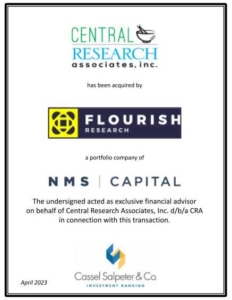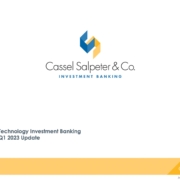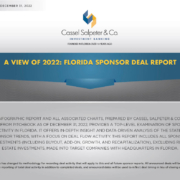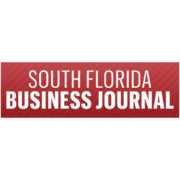By David Lyons
March 13, 2023
There’s no need for South Florida consumers to make a run on their local banks, even though the stock prices of financial institutions large and small took a pounding on Wall Street, industry executives and advisers said Monday.
Between federal insurance and the strength of the region’s financial institutions, bank customers can be confident that their money is safe after regulators took over two banks in California and New York during the weekend.
“The depositors have nothing to be concerned about because all of our banks in South Florida are very strong,” said Ken Thomas, a longtime analyst who is president of Community Development Fund Advisors in Miami.
“Any bank with an FDIC label is really safe,” Thomas said, referring to the industry-backed Federal Deposit Insurance Corp. fund that protects accounts up to $250,000.
[ RELATED: President Biden tells US to have confidence in banks after Silicon Valley Bank and Signature Bank collapse ]
That is, unless the person is a stockholder in the “banks that have taken hits.”
Those banks — Silicon Valley Bank of Santa Clara, California, and Silvergate Bank of New York — were designated as risks to the banking system by the federal government over the weekend, a move that empowered regulators to shore up uninsured deposits. Authorities also created a new path to funding for any bank in need of additional cash.
Nonetheless, bank executives were busy speaking to their customers on Monday to calm their nerves and reassure them that the Silicon Valley Bank and Silvergate Bank takeovers did not constitute a repeat of the financial collapse of 2008, when bad housing loans nearly tanked the entire economy.
“My sense is that a lot of bankers and executives are reaching out to their client base,” said attorney Greg Bader, who advises banks for the Gunster law firm in Fort Lauderdale.” The Florida Bankers Association is supporting its members. The association is coordinating efforts to provide outreach to depositors to give them information so they can see the state of the industry and reassure them about the government efforts that took place.”
“I’d have to say hats off to them,” he said of federal regulators. “They did a very good job of backstopping depositors here.”
But Bader cautioned there could be more failures of banks whose investment situations mirror those of Silicon Valley and Silvergate.
“I certainly don’t think the couple of banks that have failed so far are the last ones,” he said. “There will be definitely more, in my opinion.”
That’s due to the “dramatic rise in interest rates over a short period of time,” which forced the value of bonds purchased by the banks as investments to decline.
Letter of reassurance
Keith Costello, CEO and co-founder of Locality Bank in Fort Lauderdale, which became operational just last year, sent a letter to his customers and investors declaring their money is safe while the bank is in “excellent shape.”
“Fortunately, we are a new FDIC-insured bank, which puts us in a very strong position,” he wrote.
The executive explained that Silicon Valley Bank and Silvergate Bank “took significant losses in the securities they held on their balance sheet. When this was disclosed, and they announced that they needed to raise capital to make up for the losses, depositors panicked and withdrew funds rapidly.”
Costello said Locality’s position is on the opposite end of the spectrum.
“We have been operating in the new higher interest rate environment since we opened in January of last year,” he wrote. “We don’t have a portfolio of low-interest securities or loans. And we are extremely liquid, having only just started.”
[ RELATED: A major bank failed. Here’s why it’s not 2008 again ]
In a telephone interview, Costello said he had been up since 4 a.m. Monday speaking to customers.
“Thankfully the FDIC and the Treasury and Federal Reserve all announced a solution which is what we would expect them to do at a time like this, which is to guarantee that depositors are protected,” he said. “I put myself out there with all of our clients. That’s all people want to do is have a conversation with somebody.”
Keep your eggs in many baskets
Still, Costello is recommending that people should look to establish “multiple bank relationships” instead of keeping their money in one place.
“No matter how big a bank is [remember 2009], they are not immune,” he said in his letter. “The best defense is the old expression, ‘Don’t keep all your eggs in one basket’, especially with the price of eggs!”
John Heller, a Fort Lauderdale-based CPA and director at Marcum, the public accounting and business advisory firm, agreed that multiple individuals and business operators should do business with more than one bank, particularly given the $250,000 ceiling for FDIC-insured deposits.
“I don’t know what percentage of individuals have more than $250,000 in any one bank.” Heller said. “It’s really the businesses that need to be more concerned.”
If there is a run on a bank that’s holding an account owner’s last $10,000 or $1,000 and there’s no access, the depositor is stuck.
“If they need it tomorrow, that’s not helpful,” Heller said.
Consumers weren’t the only ones who were worried after the weekend of regulatory maneuvering in Washington.
[ RELATED: Will it take market crash for Congress to raise debt limit? ]
There is an unknown number of South Florida businesses that are customers of Silicon Valley Bank, which caters to technology company startups. The bank opened a branch on Brickell Avenue in Miami two years ago to take advantage of the city’s growing technology sector.
In a buoyant September 2021 news release, the bank announced its arrival with “a team of commercial bankers” to lend money to participants in “Florida’s dynamic innovation sector.”
The company said it was working with “several hundred Florida-based technology and life science companies and investors,” providing commercial banking, private banking and wealth management services “to technology and life sciences companies of all sizes and their investors.”
Regardless of what happens to the bank, Heller pointed out, borrowers will still have to repay what they owe.
“They should expect to keep repaying their loan,” he said. “They certainly owe the money and somebody is going to collect it. ”
Those who had business loan applications in progress will likely have to go somewhere else to borrow money.
“Every business should keep two or three banking relationships going for when they need to shop,” Heller said.
Commercial lending continues
Technology aside, the rest of the commercial lending business is doing well in South Florida, namely on the strength of continuing strong employment and the influx of new residents, said Jim Cassel, co-founder and chairman of Cassel Salpeter & Co. of Miami, an independent investment banking firm that helps middle market and emerging growth companies.
The firm announced Monday it helped Quick Shift Capital of Boca Raton obtain money for a financing business that caters to independent used car dealers and wholesalers. The money came from Synovus Bank of Georgia.
“The economy’s still doing very well, driven by the consumer and employment increases.” Cassel said. “The community banks are lending; they are just being a little more cautious.”
Yet, he said, there is a lot of existing commercial debt that will be coming due over the next couple of years, “that has to be financed at significantly higher [interest] rates.”
“If the cash flows have grown, the borrowers can support that,” he added. But he can’t believe that South Florida will be immune to a recession that many believe will be the result of an economic slowdown.
“Maybe Palm Beach and Fisher Island will be fine, and maybe off Las Olas [Boulevard] will be fine,” he said. ”Other places will have an effect. We’ve seen it before.”
Staff writer David Lyons can be reached at dvlyons@SunSentinel.com
Click here to read the PDF.
Click here to read the full article.



 MIAMI – May 25 2023
MIAMI – May 25 2023







